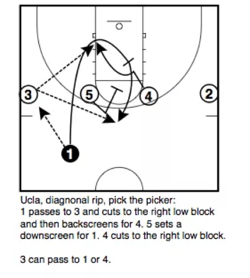
Start With Predictability to Build Trust in Teams
Decision-Making | Teams & Culture

We all are familiar with the Trust Fall – the stereotypical team building activity where you fall backwards and another person catches you. The goal of this activity is to promote trust in the workplace; unfortunately, it doesn’t work. That is, although we almost always catch the falling teammate, the trust isn’t easily transferred to the world of work, where the circumstances, the speed, and the definitions of roles and accountabilities are apt to be much different.
Unfortunately, rather than building true trust and preparing for this world of work, it’s as if most teams are playing hard at a variety of games simultaneously. You might be preparing for the Trust Fall, while others are preparing for Musical Chairs. In the end, this leads you to look back for your teammates to see who will catch you, to see if they are paying attention, or if they are looking for their own chair. Everyone else on the team, who are playing musical chairs, can’t predict what the other individuals will do, so they just continue to go around in circles. And, when the music stops, everyone scrambles for position. There’s very little continuous communication across the team.
These sets of bad habits and behaviors consistently lead to results we don’t want. In fact, these routines we see in meetings every day lead to a ton of wasted time.
- Shared leadership gone bad: It’s unclear who owns a project. Everyone kind of owns it and assumes others know their role and accountabilities.
- Focusing on Plans v. Purpose: We get into repetitive behaviors that take us in circles like focusing on defining and analyzing metrics against a plan, without regularly looking at the big picture or examining how to adapt.
- Covering all bases: Focusing too much on listing every possible action and trying to anticipate everything, when there is very little data or evidence. The focus should be getting on base instead of covering all the bases.

Instead, we might think about our work the way NBA coaches do. To the right is a visual of one of the hundreds of plays basketball teams might train on. The coach and team create these plays, much like we have project plans. The key difference between our work and the work of the NBA is that in basketball, the team practices these plays over and over again until they become part of their muscle memory. Each player is able to predict and trust where each of their teammates will be.
The only way they get to this level of teamwork is through constant practice as a team. In our work, we are constantly in meetings – meetings that should be considered practice time. It’s the time we get to practice our plays, figure out who’s doing what, and build the confidence that no matter what, during “game time,” your teammates will figure out a way to get into position, and you will know how to flow with their reactions.
We can’t work harder in education, there’s not enough time in the day. But, we can work smarter. The unit of change is the team. When we get good at practicing with our teams, the work experience is inspiring, aligned, and successful. Using The New School Rules, with a focus on the Teaming and Decision Making chapters, can help you take some initial steps starting tomorrow to build a more predictable, trusting team environment.
About Anthony Kim
Anthony Kim is a Corwin Press bestselling author, with publications including The New Team Habits, The New School Rules, and The Personalized Learning Playbook. His writing ranges the topics of the future of work, leadership and team motivation, improving the way we work, and innovation in systems-based approaches to organizations and school design. Anthony believes that how we work is the key determinant to the success of any organization. He is a nationally recognized speaker on learning and his work has been referenced by the Christensen Institute, iNACOL, EdSurge, CompetencyWorks, Education Week, District Administration, and numerous research reports. In addition to his writing, Anthony is the founder and Chief Learning Officer of Education Elements, a trusted partner and consultant to over 1,000 schools nationwide. Anthony has been the founder of several companies across multiple industries, including online education, ecommerce, and concerts and events.




